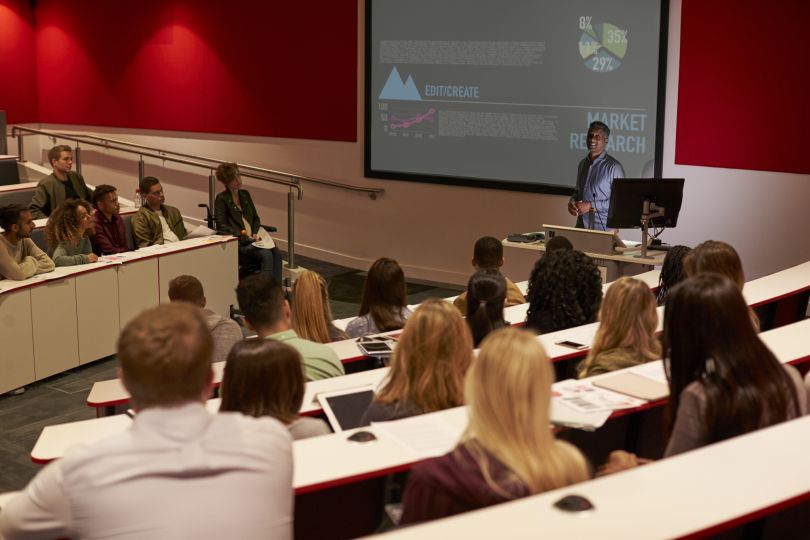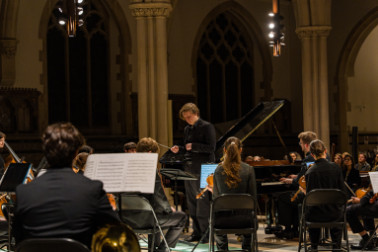After completing secondary school and obtaining the basic compulsory education, similar to what Ukrainian children receive after the 9th grade, Swiss students can choose one of two paths:
- Continue their studies in school. In this case, students attend a specialized secondary school or gymnasium. Based on the categorization that took place in the compulsory secondary school, as discussed in the first column, and considering their abilities and preferences, 9th graders can continue their education in school to obtain a real technical profession or choose the path towards a university education by opting for a gymnasium.
- Dual education that combines theoretical knowledge with practical training at companies. This so-called dual vocational training is somewhat similar to our vocational-technical education institutions. Upon completion, students receive a diploma and can immediately start working. However, most of these diplomas also allow for further higher education - a professional bachelor's degree.
Higher education institutions
Regarding higher education in Switzerland, there are only two federal-level universities: ETH Zurich (Swiss Federal Institute of Technology Zurich) and EPFL Lausanne (École Polytechnique fédérale de Lausanne). These are the top universities in the country offering the highest quality education. Graduating from these universities ensures good job prospects.
In addition, there are ten cantonal universities and universities of applied sciences (including pedagogical universities). They also provide quality education but are slightly less prestigious than the top two.
It is important to note that while gaining admission to polytechnic universities is highly desirable, not all students will obtain a bachelor's degree. Approximately fifty percent of applicants do not complete their first year. Studying at federal polytechnic universities is quite challenging, and there is no concept of "retaking exams." Therefore, one should consider private educational institutions in case of expulsion or failure to gain admission to state universities. These institutions vary significantly in price and academic quality, so careful consideration is essential, considering reputation, accreditation, and programs.
Foreign students aiming to enter federal polytechnic universities usually come to the country during adolescence and attend so-called boarding schools, where students live and study. After completing such schools, they can attempt to enter the top universities. However, it is worth noting that most educational programs are conducted in the cantonal languages, with very few in English, and competition for these programs is high. Therefore, from the beginning, paying significant attention to learning French or German is essential.
To gain admission to universities, students must take exams. State schools offer only the federal Swiss Maturity exam, which is the most challenging examination, comprising tests on 12 subjects. Private schools have various options, with exams covering 5 to 8 subjects.

Vocational Education
As for vocational education, there are also diverse opportunities in Switzerland. The most popular is dual education, where children spend most of their study time acquiring practical skills at specialized enterprises. It is similar to Ukrainian technical schools and vocational-technical colleges but emphasizes practical training more. Furthermore, in vocational education, children can start earning almost immediately.
The noteworthy point is that many teenagers in Switzerland work part-time during the summer, for example, in vineyards or elsewhere. This is not only considered normal but also accepted by society. Even university students can take part-time jobs, and some companies have educational programs for children. For instance, UBS Bank hires 15-16-year-old school graduates and gradually nurtures them into becoming employees. It is entirely possible to grow from a secretary or manager to a director under such conditions.
For certain professions, one can receive a diploma in professional education from schools, such as training workshops or commercial and information schools, not exclusively from professional educational institutions.
Professional education lasts from two to four years, depending on the number of subjects and the complexity of the profession to be mastered.
Admission to vocational schools does not require exams. Children are accepted based on their performance in compulsory schools and interviews.
After obtaining professional diplomas, young people can enroll in specialized universities in fields such as technology, architecture, life sciences; nature, landscape, and food; economics and service industries; design and arts; health and social issues. Admission is usually possible without additional conditions, although some diplomas may require an additional year of study and exams for university entry.
What Ukrainian Parents Should Know?
It is crucial to understand that if you want your child to get into a public university in Switzerland, you must focus seriously on education. Consider sending them to private schools, hiring tutors, etc. In general, children need to exert considerable effort.
Also, it is worth realizing that it is not a tragedy if your child does not go to a university but enters a technical school. They will still receive an education and have good job prospects. Technical schools provide an excellent education.
It is important to note that Ukrainian children with S status are equivalent to Swiss students. Still, differences in the education systems mean that our children need to study longer to catch up with the curriculum. Teenagers aged 15-16 have almost no chance of entering a public university because they do not have the mandatory general education with all its peculiarities. However, with a Ukrainian diploma, they can apply to private universities, where studying is easier and quicker.
Specifically, children can attend business schools after Ukrainian exams (ZNO) or simply with a Ukrainian diploma. Bachelor's degree programs in such educational institutions last for three years. Subsequently, they can continue their education by enrolling in master's programs, which can last from one to one and a half years (varying between different institutions). However, a doctoral degree can only be obtained at federal polytechnic and cantonal universities.

An important point: while public universities can guarantee job placements, graduates from private educational institutions need to find jobs independently. Some good private universities hire coaches who advise students to properly format and submit their resumes, write motivational letters, or join internships. However, no one guarantees a job.
I want to emphasize again that Ukrainian parents must be cautious in choosing private universities. Cheap or even average-level institutions may issue diplomas that could make it challenging to find a job later. There is even a fraudulent education market. Ukrainian parents should understand that not all education in Switzerland is good. It is effortless to register a business here. Sometimes private universities deceive people who do not understand education.
Another crucial point is that Switzerland is interested in teenagers at the state level. This is a result of the demographic crisis. It may happen that Ukrainian children will have their S status extended to stimulate them to stay and study, but their parents won't. Since parents are not obligated to be in Switzerland while their children study, it is necessary to consider where and how your child can continue their education, for example, in a boarding school or if you can find someone to take responsibility for your child until they turn 18.
The Price of Education
State higher education in Switzerland is practically free. For instance, the tuition fee for a year in a federal or cantonal university may range from 500 to 1,500-2,000 Swiss francs. These universities operate on state or cantonal budgets.
Regarding business schools, tuition costs range from 9,000 to 20,000 francs per year.
Of course, many private universities offer discounts. For Ukrainians with S status, these discounts can be 20%, 30%, or even 50%, depending on the canton.
In general, private universities are a significant topic. Recently, we recorded a podcast with Dmitriy Milashchuk, where this topic was discussed more extensively. I recommend listening to it.








